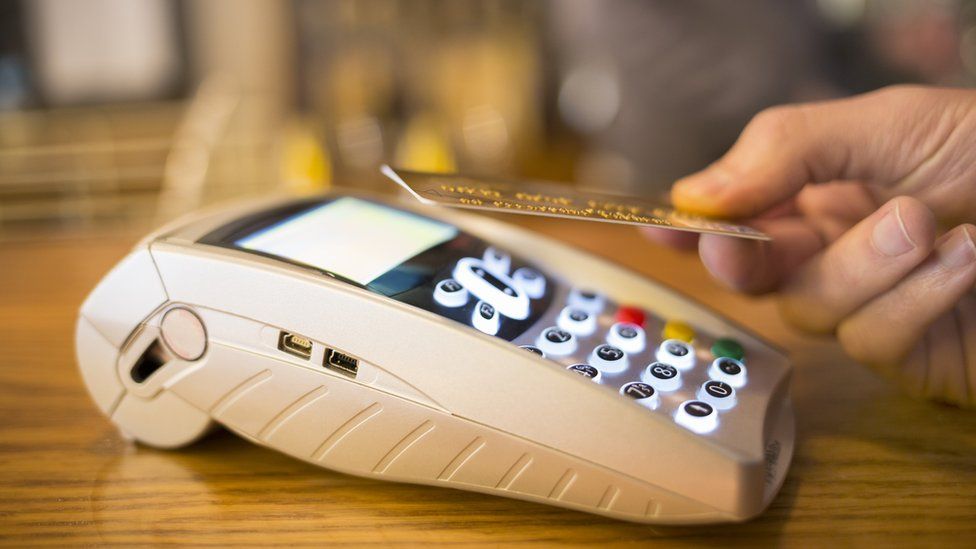Contactless cards' popularity grows
- Published

The use of contactless payments in the first half of the year outstripped use in the whole of 2015 as consumers switched from cash to cards.
Spending and the number of transactions on contactless were higher in January to June than all of last year, figures from the UK Cards Association show.
Contactless now accounts for 18% of card spending - up from 7% a year ago, the data shows.
The average contactless transaction is for £8.60.
This suggests that marketing by the card companies to encourage the use of contactless for small retail purchases - particularly food and drink - has worked.
Use is high in London, reflecting the common use of contactless by commuters on the capital's transport system.
Cash is still the most common method of payment despite the increasingly popularity of contactless card use and online shopping.
Contactless customers urged to 'check' before they tap
"Contactless cards are firmly entrenched as the preferred way to pay for millions of consumers, who expect to be able to use them for everyday purchases," said Richard Koch, head of policy at the UK Cards Association.
"We anticipate the use of contactless cards will continue to increase, particularly as charities and transport operators outside London recognise the benefits this technology can bring."
The figures show that there were 1.1 billion contactless transactions in the first half of the year, compared with 1.05 billion for the whole of 2015. This saw £9.27bn spent on contactless across the UK from January to June compared with £7.75bn over the whole of the previous year.
The one-off spending limit on contactless cards rose from £20 to £30 in September last year, but some major retailers do not accept this method of payment.
Separate research by Barclaycard earlier this year suggested that Britons over the age of 60 were the fastest growing group of people taking to contactless card payments.